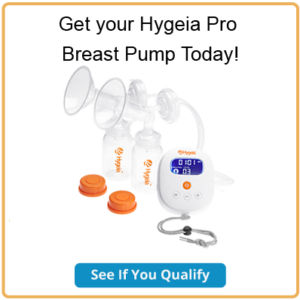After the FDA released their Consumer Alert “Breast Pumps: Don’t Be Misled – Get the Facts” last week, we’ve been getting a lot of questions from moms. Buying or renting a breast pump can be one of the more confusing purchases you make as a new mom. Pumping breast milk isn’t something you consider much before having to actually do it, and researching the different pump manufacturers, models and marketing terms gets complicated quickly. One of the first terms you see applied to pumps is “hospital-grade”, but what does that actually mean?
No FDA Regulation
The FDA does not regulate the use of the term “hospital-grade”, in fact, they say: “Please note that the term “hospital-grade pump” is not recognized by the FDA and there is no consistent definition for this term, so individual companies could mean different things when they label their breast pumps as hospital-grade.”
In the Consumer Alert referenced above, Kathryn S. Daws-Kopp, an electrical engineer at the FDA says, “Many hospitals, lactation consultants and specialty medical supply stores rent breast pumps for use by multiple users. Sometimes these pumps are labeled “hospital grade”. But that term is not one FDA recognizes, and there is no consistent definition. Consumers need to know it doesn’t mean the pump is safe or hygienic.”
Daws-Kopp adds that different companies may mean different things when they label a pump with this term, and that FDA encourages manufacturers to instead use the terms “multiple user” and “single user” in their labeling. “If you don’t know for sure whether a pump is meant for a single user or multiple users, it’s safer to just not get it,” she says. The same precaution should be taken for “used” or second-hand pumps.
History
How did the term “hospital-grade” become so widely used in the industry if there is no FDA regulation of the term? Historically, the breast pumps sold for use in hospitals did have different features and performance than the pumps sold for personal-use and the wording stuck. Today, “hospital-grade” has become a marketing term that manufacturers use when selling certain pump models in the healthcare system. Insurance coding differentiates personal-use pumps and hospital-grade pumps with different codes, so the industry terminology has gotten passed along.
Multi-User
If you ask your lactation consultant for a definition of a “hospital-grade” pump, one of the first features they will point out is the ability of the pump to be used by multiple moms when they each have their own accessory kit. Most personal-use breast pumps on the market are sold and clearly labeled for use by one mom only because of the risk of cross-contamination.
All Hygeia pumps are designed to be safe for use by multiple users when each mom has her own Personal Accessory Set. The industry calls this a “closed-system”.
Insurance Coding
Because breast pumps and breast pump rentals can be covered by insurance companies, and the circumstances that make them medically necessary vary, manufacturers use three different insurance billing codes to categorize breast pumps. These are Hospital-Grade, Personal-Grade and Manual Pump.
Breast pump manufacturers designate which of their pump models meet the “hospital-grade” designation, and register the pump accordingly. There are no performance requirements when registering a breast pump under any billing classification.
Are Hygeia Pumps “Hospital-Grade”?
All Hygeia electric pumps feature piston-driven technology and meet or exceed industry-accepted hospital-grade performance standards.
What’s the Difference?
Our EnJoye™ line of pumps is available at a range of price points, and it’s ideal for the mom who plans to pump frequently for an extended period of time. It’s lightweight, portable, and you can choose the option of a rechargeable, internal battery.
The EnDeare™ is available for purchase by consumers but is most frequently used in the professional setting. It is larger and heavier than the EnJoye™.
Intended Use
Talk to your lactation consultant about your pump purchase and ask for her recommendations based on how you intend to use the pump. Since the entire line of Hygeia breast pumps provide hospital-grade performance, ask yourself:
· How long do I plan to pump and how many times per day?
· Do I need a pump with an internal battery or will I be pumping with electrical power most of the time?
· What is my budget for this pump, and does resale value factor into that decision?
· Does my insurance company cover a pump purchase or rental?
· Will the pump need to be portable?

